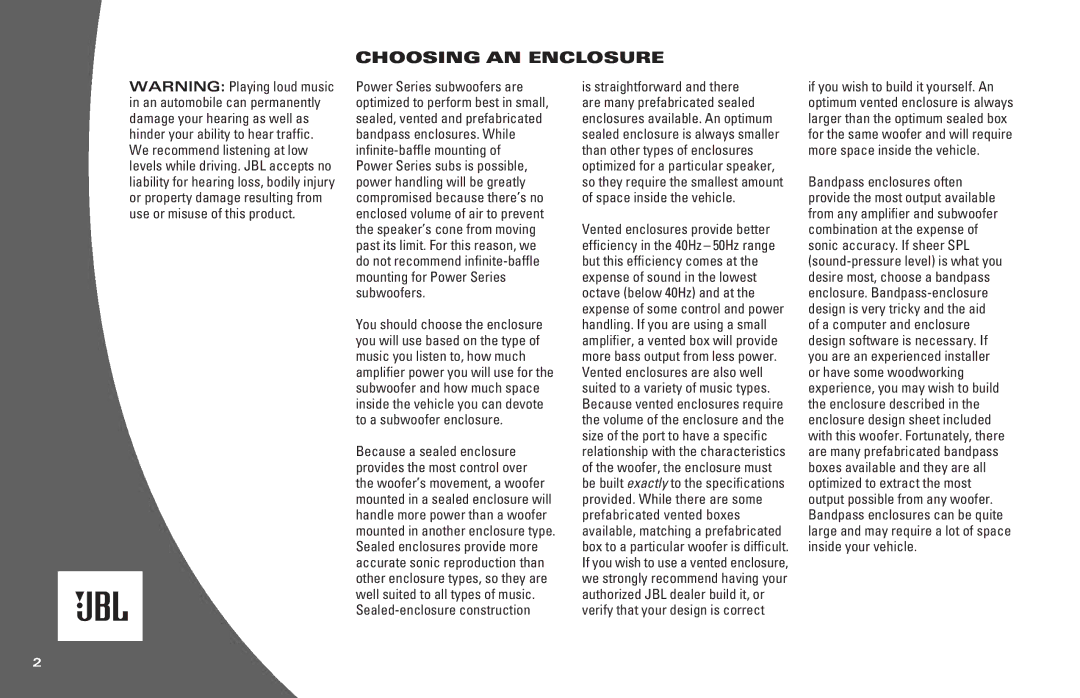P1224, P1024, P1022, P1222 specifications
JBL is a renowned brand in the audio industry, known for its high-quality speakers and sound systems. Among its impressive lineup, the JBL P1222, P1022, P1024, and P1224 stand out as notable subwoofers designed for both performance and reliability in various applications, including automotive and home audio systems.The JBL P1222 is a 12-inch subwoofer that features a peak power handling of 1200 watts. It is engineered with a specially designed cone and rubber surround to deliver deep, powerful bass while maintaining clarity. The subwoofer is equipped with a vented design to improve thermal management, ensuring longevity even under high power conditions. Its high sensitivity rating allows it to produce a strong output with less power input, making it an efficient choice for audio enthusiasts.
The JBL P1022, on the other hand, is a 10-inch variant that also offers impressive features. With a peak power handling of 1000 watts, it retains the same engineering quality as the P1222, focusing on delivering impactful bass. The injection-molded polypropylene cone ensures durability and effective sound reproduction, while the rubber surround provides enhanced performance during high excursion. This subwoofer is ideal for those looking to add a punchy bass response without sacrificing sound quality.
Moving to the P1024, this model takes it up a notch with its advanced features tailored for serious users. The P1024 is designed with a dual voice coil configuration, allowing for flexible wiring options. With a peak power handling of 1200 watts, this subwoofer manages to produce robust bass across different frequency ranges. Its durable construction and high-quality components further enhance performance, ensuring it can withstand the rigors of high-powered use.
Lastly, the JBL P1224 combines the best aspects of the P1222 and P1024, offering exceptional performance in a 12-inch package with dual voice coils. With a peak power handling of 2400 watts, the P1224 is engineered for serious bass enthusiasts who demand nothing less than remarkable output levels. Advanced cooling technology prevents overheating, allowing users to push their systems to the limit without fear of failure.
In summary, JBL's P-series subwoofers, including the P1222, P1022, P1024, and P1224, represent a blend of innovative technologies, robust construction, and superior sound performance, making them ideal choices for anyone seeking to elevate their audio experience. These models cater to various needs, from casual listening to professional setups, ensuring that users enjoy the deep, resonant bass that JBL is known for.

